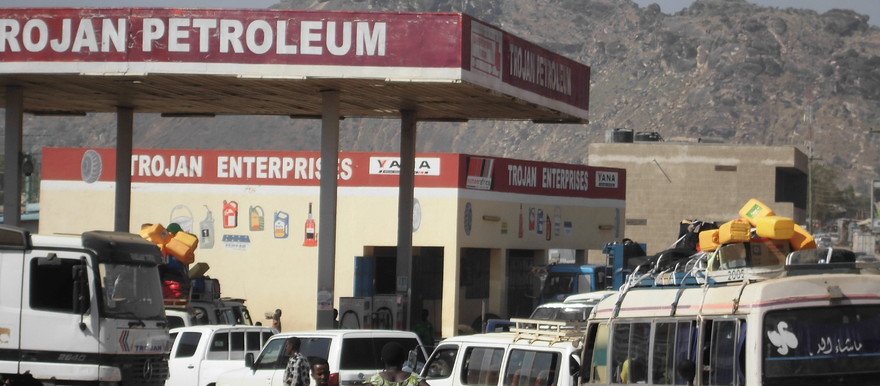Clashes in South Sudan’s capital earlier this week have caused economic disruptions that led to rise of commodity prices including fuel.
Although the nominal price of fuel at petrol stations remains the same as it was before the conflict, many stations are closed and black market prices have risen.
At five petrol stations across the city of Juba this morning, many people were queuing either on foot with their jerrycans or in their cars, according to a Radio Tamazuj correspondent who visited the stations.
The price remains 6 SSP per litre at the stations but the retail price outside the fuel stations has increased from 8 to 10 SSP. Also many petrol stations remained closed.
Petrol and diesel are necessary in Juba not only for vehicles but also for generators at companies, organizations and government offices, because the city does not provide electricity to residents, except in a few neighborhoods and only very rarely.
‘Water trucks on the move again’
Meanwhile, there were disruptions to the supply of water to parts of the city, because insecurity prevented water trucks from moving. Many residents report now that water trucks are again moving throughout the city.
Supply lines of basic foodstuffs from Uganda were cut on Monday and Tuesday, when it was reported that many trucks were lined up on the Ugandan side waiting to cross. The impact of this is not yet established, but prices of commodities were reported as normal at roadside shops in Muniki Block C.
For their part, mobile phone users yesterday and earlier in the week reported shortages of airtime credit at some shops. Many small shops in Juba ran out of pre-paid airtime credit cards because they were cut off from distributors during the conflict.
Vivacell customers in Yei County reported scarcity of airtimes in the whole county. Since Monday the price of two pound scratch cards increased to three pounds, and that of five went to six and ten went to twelve pounds.
Retailer Jack Joseph told Radio Easter in Yei yesterday that retailers previously bought airtime at 95 Pounds, but they now buy at 100 Pounds forcing to them increase prices to make a profit.
News photo by Radio Tamazuj: a queue at Trojan Petroleum station queue at Trojan Petroleum station, Juba
Related: Banks to reopen in South Sudan capital in wake of clashes (18 December 2013)




